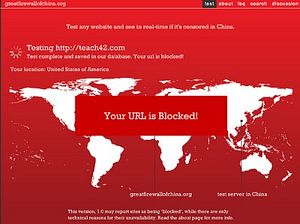Over the past five years the Chinese government has expanded its campaign to constrain foreign news outlets from casting China in a negative light, according to a report released today by the non-government organization Freedom House.
The report, entitled The Long Shadow of Chinese Censorship: How Chinese Media Restrictions Affect News Outlets around the World, notes that the Chinese Communist Party has tried to clamp down on free media for the past two decades. However, Sarah Cook, the report’s author, says that this campaign has grown increasingly intense over the past half-decade.
“The Chinese government’s efforts to influence reporting by foreign and overseas Chinese news outlets have intensified and expanded over the past five years,” Cook writes.
Although the CCP’s global war against a free media is multifaceted, Ms. Cook identifies four key strategies the government uses to prevent international media outlets from reporting on topics it considers sensitive. These include:
- Direct action by Chinese authorities inside and outside the country to obstruct newsgathering, prevent the publication of undesirable content, and punish overseas media outlets that fail to heed restrictions.
- Offering economic carrots and sticks to induce self-censorship among media outlets with a Chinese presence.
- “Indirect pressure applied via proxies–including advertisers, satellite firms, and foreign governments–who take action to prevent or punish the publication of content critical of Beijing.”
- Non-traceable cyberattacks and physical assaults against international media websites.
Ms. Cook goes on to explain that the CCP utilizes different tactics depending on the type of news organization that it is targeting. For example, it relies heavily on cyberattacks to target large international media outlets like CNN and The New York Times, as well as obstructing their ability to report from inside the country by harassing the reporters and their Chinese assistants and denying them visas.
In addition, at times Chinese diplomats have met directly with senior executives of large international media outlets to try and persuade them to not run or to remove stories that cast the CCP and its leaders in a negative light. In one notable incident, the president of the Foreign Correspondents’ Club of China, Peter Ford, claims that Chinese authorities threatened him and the organization with “serious consequences” for posting notes about media freedom conditions in China on its website.
On the other hand, in countries in South and Southeast Asia where China has enormous economic leverage, Beijing often uses local government officials to force their national newspapers to report on China in a positive light. Some countries, like Vietnam, have arrested citizens who have failed to heed that lesson. Elsewhere in Asia, as well as in Africa and Latin America, the CCP has mostly focused on expanding the presence of state-run Chinese media outlets rather than restricting local media organization’s reporting.
The CCP has also gone to greater lengths in recent years to control the editorial lines of media outlets in Taiwan and Hong Kong.
“Co-opting owners of media outlets in Hong Kong, Taiwan, and the Chinese diaspora in order to marginalize dissenting reporting and commentary has been a key strategy,” the report states. “Outlets and owners whose reporting portrays Beijing positively are frequently rewarded with advertising, lucrative contracts for non-media enterprises, joint ventures, and even political appointments. When such tactics fail to reach their objectives, more heavy-handed approaches have been used.”
In Hong Kong, Cook notes, this increasingly extends into trying to frame reporting on internal Hong Kong politics in ways that are favorable to Beijing. In Taiwan, on the other hand, the CCP has stayed away from trying to shape reporting on subjects like Taiwanese independence. Instead, its efforts in the country are aimed at ensuring favorable coverage of mainland China itself.
The report notes that some of the CCP’s most aggressive efforts have been directed against overseas independent Chinese-language media outlets, which are widely read on the mainland and highly critical of the CCP. To counter these sources, the CCP has tried to undermine their financial viability and block their ability to access mainland audiences.
Moreover, according to Cook, these websites “suffered advertising boycotts, debilitating cyberattacks, and harassment of contacts in China. In several cases, foreign companies and event organizers–ranging from Apple to Eutelsat to NASDAQ–have barred their access to newsworthy events outside China or assisted in Chinese government efforts to prevent their content from reaching mainland audiences.”
Cook notes that the number of subject matters that the CCP aims to control international media coverage of have grown in recent years. Nonetheless, five subjects continue to be the most important to the CCP: Tibet, Xinjiang, the Falun Gong, Chinese democracy activists, and Taiwanese independence. Other subjects that the CCP has targeted are AIDS in China and senior leaders’ personal wealth.
The report notes that this extensive campaign to stifle international media freedom has only had limited success as hard-hitting reporting on China has continued. Nonetheless, Cook notes that media outlets have had to pay a heavy price for these stories. For example, after The New York Times featured a huge expose on the wealth of former Premier Wen Jiabao, the CCP blocked the NYT’s English and newly launched Chinese-language websites in the mainland. This caused the company’s stock to drop by 20 percent overnight as the NYT had to renegotiate contracts with advertisers.
The biggest potential threat, then, is that media organizations will practice more self-censorship in order to remain in the CCP’s good graces, and therefore continue to have access to the enormous Chinese market. It’s worth noting that toeing to the CCP is already happening to a much greater extent in other industries such as the movie industry.

































